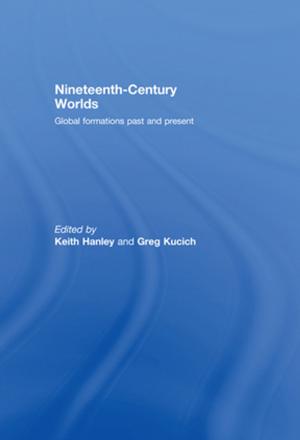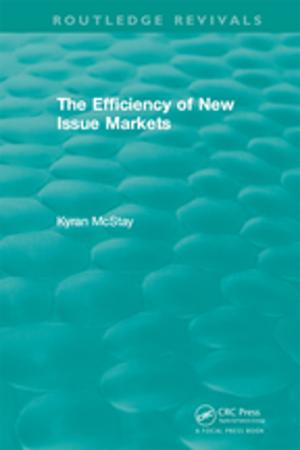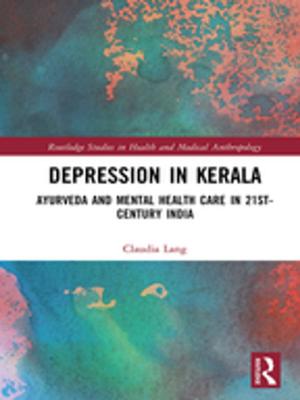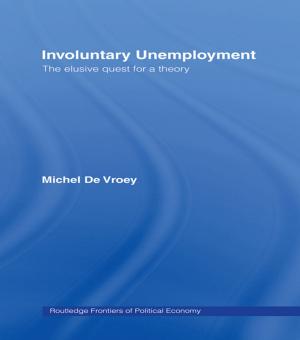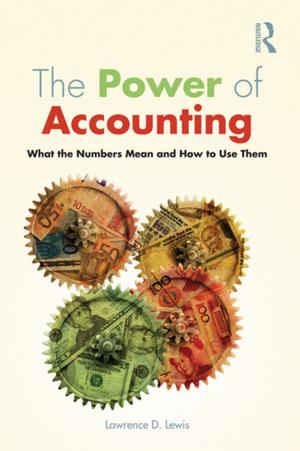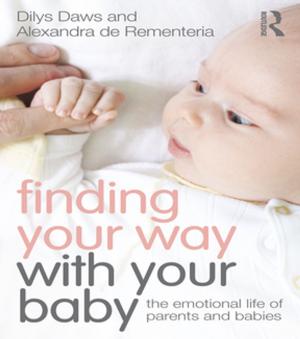| Author: | ISBN: | 9781317066392 | |
| Publisher: | Taylor and Francis | Publication: | December 5, 2016 |
| Imprint: | Routledge | Language: | English |
| Author: | |
| ISBN: | 9781317066392 |
| Publisher: | Taylor and Francis |
| Publication: | December 5, 2016 |
| Imprint: | Routledge |
| Language: | English |
How are processes of vision, perception, and sensation conceived in the Renaissance? How are those conceptions made manifest in the arts? The essays in this volume address these and similar questions to establish important theoretical and philosophical bases for artistic production in the Renaissance and beyond. The essays also attend to the views of historically significant writers from the ancient classical period to the eighteenth century, including Plato, Aristotle, Plotinus, St Augustine, Ibn Sina (Avicenna), Ibn al-Haytham (Alhazen), Ibn Sahl, Marsilio Ficino, Nicholas of Cusa, Leon Battista Alberti, Gian Paolo Lomazzo, Gregorio Comanini, John Davies, Rene Descartes, Samuel van Hoogstraten, and George Berkeley. Contributors carefully scrutinize and illustrate the effect of changing and evolving ideas of intellectual and physical vision on artistic practice in Florence, Rome, Venice, England, Austria, and the Netherlands. The artists whose work and practices are discussed include Fra Angelico, Donatello, Leonardo da Vinci, Filippino Lippi, Giovanni Bellini, Raphael, Parmigianino, Titian, Bronzino, Johannes Gumpp and Rembrandt van Rijn. Taken together, the essays provide the reader with a fresh perspective on the intellectual confluence between art, science, philosophy, and literature across Renaissance Europe.
How are processes of vision, perception, and sensation conceived in the Renaissance? How are those conceptions made manifest in the arts? The essays in this volume address these and similar questions to establish important theoretical and philosophical bases for artistic production in the Renaissance and beyond. The essays also attend to the views of historically significant writers from the ancient classical period to the eighteenth century, including Plato, Aristotle, Plotinus, St Augustine, Ibn Sina (Avicenna), Ibn al-Haytham (Alhazen), Ibn Sahl, Marsilio Ficino, Nicholas of Cusa, Leon Battista Alberti, Gian Paolo Lomazzo, Gregorio Comanini, John Davies, Rene Descartes, Samuel van Hoogstraten, and George Berkeley. Contributors carefully scrutinize and illustrate the effect of changing and evolving ideas of intellectual and physical vision on artistic practice in Florence, Rome, Venice, England, Austria, and the Netherlands. The artists whose work and practices are discussed include Fra Angelico, Donatello, Leonardo da Vinci, Filippino Lippi, Giovanni Bellini, Raphael, Parmigianino, Titian, Bronzino, Johannes Gumpp and Rembrandt van Rijn. Taken together, the essays provide the reader with a fresh perspective on the intellectual confluence between art, science, philosophy, and literature across Renaissance Europe.

